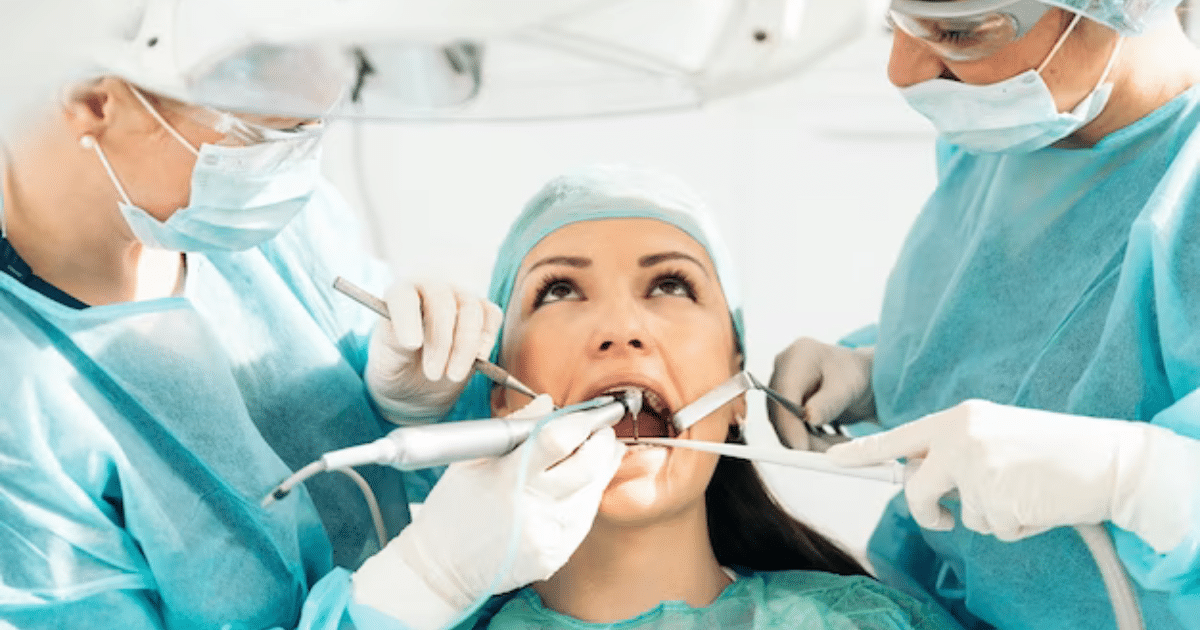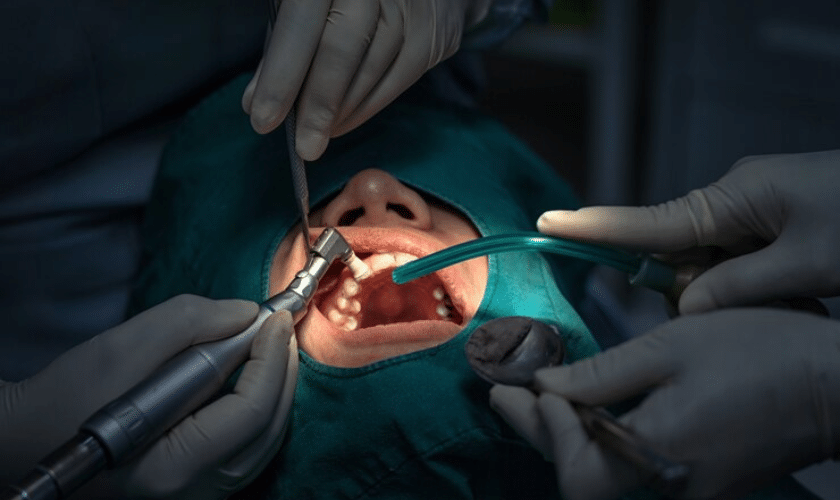
Are you scheduled for an upcoming oral surgery? You might be wondering if it’s okay to drink water before the procedure. Well, we’ve got good news for you – hydration is key! In this blog post, we’ll explore the benefits of drinking water before oral surgery and discuss any potential risks. So grab a glass of H2O, and let’s dive in!
Reasons Why Drinking Water Before Oral Surgery Is Beneficial
Drinking water before oral surgery is highly beneficial for several reasons. First and foremost, it helps in maintaining hydration levels, which is crucial for the overall well-being of our bodies. Hydration ensures that our organs are functioning optimally and can aid in a smoother recovery process after surgery.
Additionally, water can help reduce the risk of oral infections. By staying hydrated, we are flushing out toxins from our bodies and promoting saliva production. Saliva acts as a natural defense mechanism against harmful bacteria that can cause infections in the mouth.
Furthermore, drinking water before oral surgery can also help to alleviate post-surgery pain. Adequate hydration keeps tissues moist and supple, reducing discomfort during the healing process. It can also prevent dryness or cracking of lips or gums.
Drinking water before oral surgery offers numerous benefits, such as maintaining hydration levels, reducing the risk of oral infections, and alleviating post-surgery pain. It is essential to consult with your dentist regarding any specific instructions or restrictions on fluid intake prior to your procedure.
Maintaining Hydration Levels
Maintaining proper hydration levels is crucial before undergoing oral surgery. Staying hydrated not only helps with overall health and well-being, but it can also have specific benefits during the surgical procedure.
Drinking water before oral surgery ensures that your body is adequately hydrated. This is important because dehydration can lead to complications during anesthesia and recovery. By keeping your body properly hydrated, you are helping to ensure a smoother surgical experience.
Additionally, staying hydrated can reduce the risk of post-surgery infections. Water plays a vital role in flushing out toxins and bacteria from the mouth, which can help prevent infection at the surgical site. It also aids in promoting optimal healing after surgery.
Furthermore, maintaining hydration levels can help alleviate post-surgery pain. Drinking enough water keeps mucous membranes moist and lubricated, reducing discomfort caused by dryness or irritation.
Drinking water before oral surgery has numerous benefits, such as maintaining hydration levels, reducing the risk of infections, and alleviating post-surgery pain. It’s important to consult with your dentist for specific pre-operative instructions regarding fasting or any restrictions on fluid intake prior to your procedure.
Reducing Oral Infections
Oral infections can be a common concern before and after oral surgery. These infections can cause discomfort and pain and even delay the healing process. However, by drinking water before your oral surgery, you may be able to reduce the risk of developing oral infections.
One of the main reasons why drinking water is beneficial in reducing oral infections is that it helps to flush out bacteria from your mouth. Water acts as a natural cleanser, washing away food particles and debris that can harbor harmful bacteria. By keeping your mouth clean and hydrated, you are creating an environment less suitable for bacterial growth.
In addition to flushing out bacteria, staying hydrated with water also promotes saliva production. Saliva contains antimicrobial properties that help fight against harmful microorganisms in your mouth. By increasing saliva flow through hydration, you are enhancing your body’s natural defense mechanisms against infection-causing bacteria.
Furthermore, drinking enough water before oral surgery ensures proper blood circulation throughout the body—including the gums—helping to deliver essential nutrients and oxygen needed for optimal healing post-surgery. When tissues receive adequate nourishment, they become less vulnerable to infection.
Remember that while drinking water can help reduce oral infections pre-and post-surgery, it should not replace other necessary precautions such as maintaining good dental hygiene practices or following any specific instructions provided by your dentist.
Reducing Post-Surgery Pain
After undergoing oral surgery, it’s normal to experience some level of pain and discomfort. However, there are steps you can take to help reduce post-surgery pain and promote a smoother recovery.
One effective way to minimize post-surgery pain is by drinking water before your procedure. Staying hydrated helps ensure that your body functions optimally during the healing process. Water aids in flushing out toxins from the surgical site and promotes overall healing.
In addition to hydrating your body, consuming water before oral surgery can also help prevent dry mouth. Dry mouth often occurs after surgery due to medications or anesthesia, which can lead to discomfort and difficulty in swallowing food or saliva. By staying well-hydrated, you can alleviate these symptoms and make eating more comfortable.
Risks of Drinking Water Before Oral Surgery
While drinking water before oral surgery can have its benefits, it is important to be aware of the potential risks involved. One possible risk is interference with anesthesia. When you drink water before your procedure, there is a chance that it may dilute the effects of the anesthesia, making it less effective and potentially leading to complications during surgery.
Another risk is the possibility of oral infections. If you consume water that contains bacteria or other contaminants, you could introduce these harmful substances into your mouth and increase your chances of developing an infection after surgery. It’s crucial to ensure that the water you drink is clean and safe.
Additionally, drinking water right before oral surgery may contribute to increased post-surgery pain. The act of swallowing requires muscle movement in your jaw and throat, which can put a strain on any incisions or wounds made during the procedure. This added stress can lead to more discomfort during recovery.
To minimize these risks, it’s essential to follow any pre-operative instructions given by your dentist regarding fasting from food and liquids prior to surgery. They will provide specific guidelines based on your case and needs.
Interference With Anesthesia
When it comes to oral surgery, anesthesia is a crucial component that ensures you have a pain-free experience. However, drinking water right before your procedure may interfere with the effectiveness of anesthesia.
Water can dilute the concentration of medications used in anesthesia, making them less effective. This means that you may not achieve optimal numbness or sedation during the procedure. As a result, you might feel discomfort or pain when undergoing oral surgery.
Moreover, excess water in your system can lead to an increased need for urination during the procedure. This can be inconvenient and disruptive to both you and the surgical team.
Oral Infections
One of the risks associated with drinking water before oral surgery is the potential for developing oral infections. While staying hydrated is important, it’s crucial to be mindful of the quality and cleanliness of the water you consume.
In some cases, tap water may contain bacteria or other contaminants that can lead to an infection. These infections can complicate the healing process after surgery and may require additional treatment, such as antibiotics or drainage.
Post-Surgery Pain
One of the common concerns after oral surgery is post-surgery pain. While drinking water before your procedure can have several benefits, it’s important to understand that it may not eliminate discomfort following surgery.
After oral surgery, it is normal to experience some degree of pain or discomfort. This can vary depending on the complexity of the procedure and individual pain tolerance. The extraction site may be tender and sensitive for a few days as the body begins its natural healing process.
To manage post-surgery pain effectively, your dentist will likely prescribe medication such as analgesics or recommend over-the-counter pain relievers. These medications can help alleviate any discomfort you may experience during the recovery period.
It’s important to note that while water consumption itself cannot directly alleviate post-surgery pain, staying hydrated is crucial for overall health and well-being during the recovery process. Drinking enough water helps prevent dehydration which could potentially worsen discomfort and delay healing.
Remember that every individual responds differently to oral surgery procedures and experiences varying levels of post-operative pain. It’s essential to follow your dental professional’s recommendations closely regarding both hydration and managing any potential discomfort after oral surgery.
After considering the benefits and risks of drinking water before oral surgery, it is clear that hydration plays a crucial role in ensuring a successful procedure. By maintaining adequate hydration levels, patients can support their immune system and reduce the risk of post-surgery complications.
Furthermore, staying hydrated can also contribute to reducing post-surgery pain. Dehydration can exacerbate pain symptoms, while proper hydration helps to promote faster recovery and alleviate discomfort.
While there are potential risks associated with drinking water before oral surgery, such as interference with anesthesia or increasing the risk of infection if done incorrectly, these risks can be minimized through proper guidance from your dentist.
FAQs
Q: Can I drink water before oral surgery?
A: Yes, it is generally safe to drink water before oral surgery. However, you should follow your dentist or surgeon’s instructions regarding fasting and specific guidelines for your procedure.
Q: How much water should I drink before oral surgery?
A: It is important to stay hydrated leading up to your surgery. Drink plenty of water in the days leading up to the procedure but be sure to stop drinking at least 2 hours prior to the scheduled time.
Q: What other beverages can I consume before oral surgery?
A: In addition to water, clear liquids such as apple juice or broth may be allowed in small quantities leading up to your procedure. However, it is essential that you consult with your dentist or surgeon beforehand.
Q: Can drinking too much water cause complications during oral surgery?
A: While hydration is crucial for a successful surgical outcome, excessive fluid intake immediately prior to surgery can interfere with anesthesia administration. Follow the recommended guidelines from your healthcare provider.
Q: Is it normal to feel thirsty after oral surgery?
A: Yes, feeling thirsty after oral surgery is common due to fasting requirements prior to the procedure and potential discomfort afterward. Sip on small amounts of water as directed by your dental professional.


